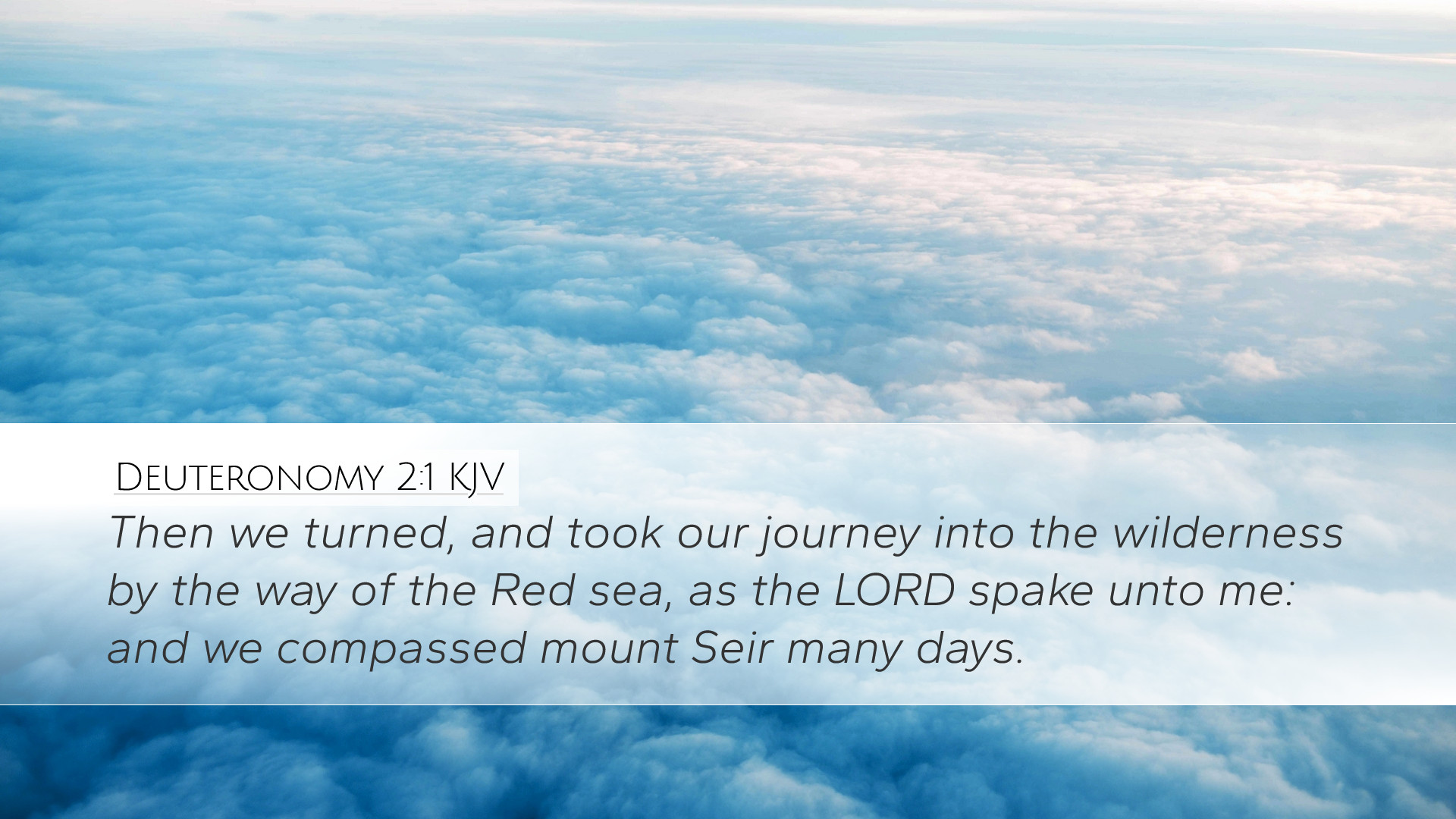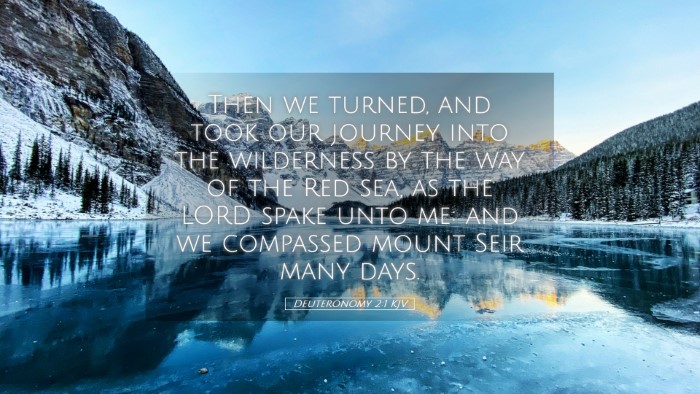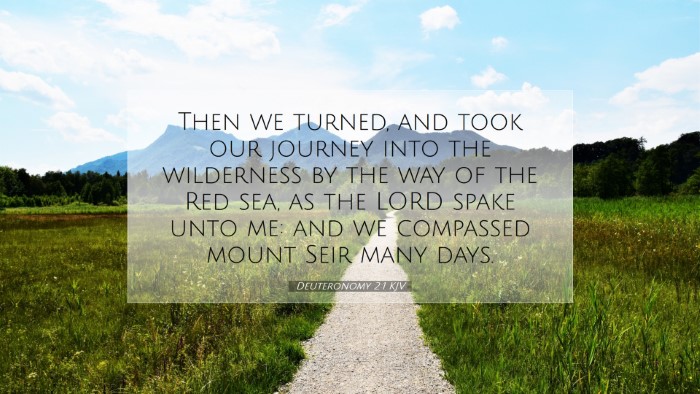Commentary on Deuteronomy 2:1
Verse (Deuteronomy 2:1): "Then we turned and took our journey into the wilderness by the way of the Red sea, as the LORD spake unto me: and we compassed mount Seir many days."
Introduction
Deuteronomy 2:1 marks a pivotal moment in the wilderness journey of the Israelites as they reflect on the path that has brought them to the edge of the Promised Land. This verse signifies both a physical and spiritual turning point, emphasizing God's guidance and the importance of obedience.
Contextual Overview
Matthew Henry emphasizes the historical context of the Israelites’ wanderings. They had been directed away from the land of Edom and instructed to journey around Mount Seir. This directive was not merely physical; it mirrored a deeper spiritual lesson about submission to God’s will and acknowledgment of His authority.
Theological Implications
In this verse, we observe several theological themes that resonate throughout Scripture:
- Divine Guidance: The phrase "as the LORD spake unto me" indicates the pivotal role of divine communication in guiding Israel’s movements. God’s guidance remains central in the believer's journey.
- Obedience and Faith: The Israelites' actions are reflective of their obedience to God's commands. Albert Barnes notes that obedience is critical in the journey of faith, affirming that God’s commands are to be followed even when circumstances seem daunting.
- The Wilderness Experience: The wilderness symbolizes a place of testing, growth, and reliance on God. Adam Clarke elucidates the spiritual significance of this trek: the wilderness is not merely a physical location, but a transformative experience for the people of Israel.
Exegesis of Key Phrases
Henry urges readers to consider the phrase "wilderness by the way of the Red sea," elucidating its significance:
- The Wilderness: A place of trials where preparation occurs before entering the Promised Land. It is a necessary part of spiritual formation.
- Red Sea: Represents past deliverance and a reminder of God’s power to save. This geographical reference serves as a reminder of God’s faithfulness in previous adversities.
Lessons for Modern Believers
This verse has a dual application for contemporary believers:
- Trust in God’s Plan: Just as the Israelites were instructed to trust in God’s guidance, believers today are called to surrender their paths and understand that God's ways are higher than our own.
- Reflection on the Journey: The journey is often as significant as the destination. Believers can reflect on their own wilderness experiences, recognizing the growth and reliance on God that occurs during trials.
Conclusion
In summary, Deuteronomy 2:1 encapsulates essential themes of divine guidance, obedience, and the lessons learned in wilderness experiences. The insights from public domain commentators like Matthew Henry, Albert Barnes, and Adam Clarke provide a robust theological framework that encourages modern readers to reflect deeply on their spiritual journeys, embracing both the challenges and triumphs along the way.


